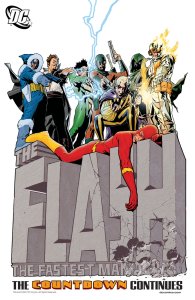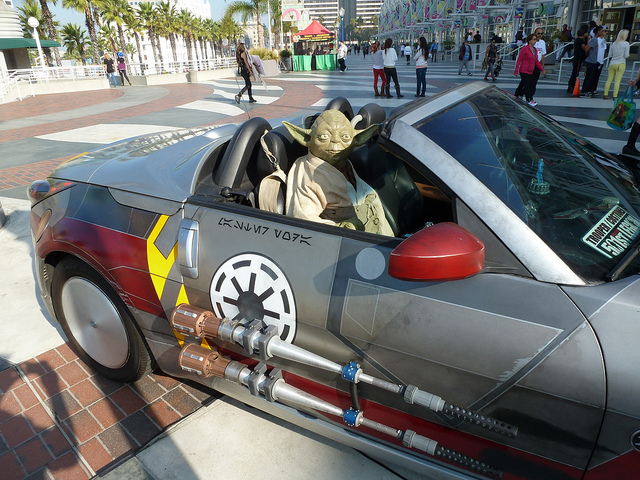I was thinking about a discussion on last month’s Flash #226 and got to thinking about the way religion figures into mainstream comic books. Not the way religious characters are portrayed, but the way the fictional world works. I’m not familiar enough with Marvel (though I can make some guesses based on the presence of Thor), but DC seems to have an “anything goes” cosmology: current scientific theory coexists with the Christian God, Heaven and Hell, with gods and other supernatural beings from various mythologies—some of them made up, like the Lords of Order and Chaos—occupying their own corners of the universe.
That’s probably what you want for a long-term, open-ended shared universe, because it gives you the most opportunities for stories. Want to write about an alien race that lived billions of years ago, or evolved from cats? Check. Have a fallen angel join the Justice League? Check. Tie Wonder Woman’s origin directly to the Greek gods? Check. Use made-up alien gods to explain the Greco-Roman split? Check. Power up half your villains and a handful of heroes as they sell their souls to a devil? Check. Pit the spirit of God’s wrath against a 50,000-year-old immortal ex-caveman? Check. Send some characters to Heaven or Hell, but have others destined to be reincarnated over and over again? Check. Observe the hand of God at the moment of the big bang? Check.
There are a couple of limits. DC seems to avoid ascribing a particular religion or denomination to any of their A-list characters, probably so that readers can just assume it’s their own (kind of like setting a story in “Anytown, USA”). And they avoid direct portrayals of God or Jesus, probably for the same reason.
DC Editorial famously rejected a Swamp Thing story back in the 1980s in which the title character, trapped bouncing backward through time, met Jesus shortly before the crucifixion. Concerned that people might be offended at the portrayal, they yanked the story at the last minute. They did offend someone: writer Rick Veitch walked off the book early, and Neil Gaiman and Jamie Delano, who were scheduled to trade off writing chores when Veitch finished his run, declined the job out of solidarity.
Things are a bit more relaxed when you leave the shared universe. Vertigo might have rejected Veitch’s story with Jesus, but they were quite willing to publish the self-contained series Preacher, which probably has as much blasphemy in its 5-year story as every other comic DC has ever published, combined. You think people are protesting The DaVinci Code? Trust me, it hasn’t got anything on Preacher. And while Lucifer’s origins as a Sandman spin-off mean it’s at least tangentially connected to the DCU, I can’t see a series about the prince of darkness getting the green light under the DC label.
And I doubt even Vertigo would go anywhere near Battle Pope.
On the other hand, Marvel published a book called Son of Satan back in the 1970s, so who knows? (I read a parody once in which Marvel editorial wanted to bring back the feature, but didn’t want to offend people with the name. Of course, budget constraints meant they could only use the letters in the original logo, so they tried out concepts like Son of Stan and Son of Santa.)



How bizarre is it that a decade later we now have TV adaptations of both Preacher and Lucifer?